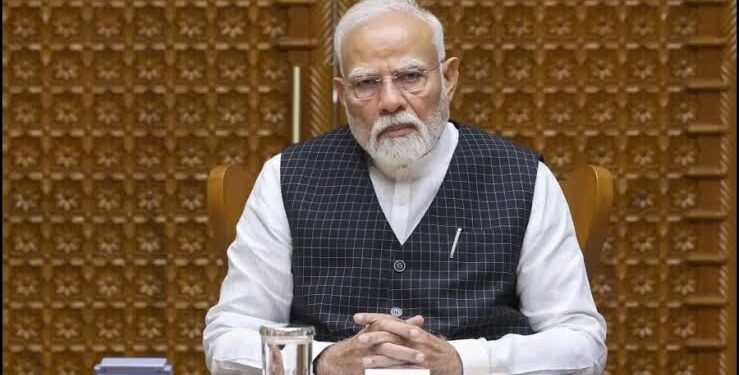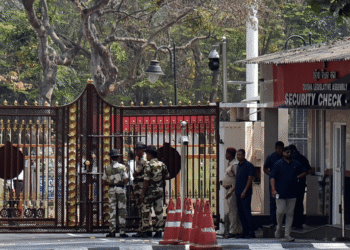In a high-stakes signal of India’s military preparedness and strategic intent, Prime Minister Narendra Modi met with Air Chief Marshal Amar Preet Singh, Chief of the Indian Air Force, on Sunday.
This follows a meeting on Saturday with Navy Chief Admiral Dinesh K Tripathi, sources confirmed to India Today TV.
The back-to-back consultations come amid heightened security tensions following the deadly terror attack in Pahalgam, Jammu & Kashmir, on April 22. The attack, which claimed 26 lives, has sharply escalated cross-border tensions, with New Delhi openly blaming Pakistan-based terror networks.
Adding urgency to the situation, Pakistan conducted a test of its Abdali Weapon System, a surface-to-surface ballistic missile with a 450 km range, as part of its military drill Exercise INDUS, on Saturday.
India’s Military Readiness
The Indian Navy has launched extensive maritime drills in the Arabian Sea, and a navigation warning was issued to commercial ships by the National Hydrographic Office, advising them to avoid certain zones. Both Indian and Pakistani naval forces remain on high alert.
On Saturday evening, Admiral Tripathi briefed the Prime Minister on current naval operations, particularly in the Arabian Sea. The next day, the Air Chief updated the PM on the Indian Air Force’s operational readiness and surveillance activities.
Operational Autonomy for Armed Forces
Last Tuesday, PM Modi chaired a high-level meeting with Defence Minister Rajnath Singh, NSA Ajit Doval, CDS General Anil Chauhan, and the three service chiefs, where he reportedly gave them “complete operational freedom” to determine the mode, timing, and targets for India’s response to terrorism.
“It is a national resolve to deal a crushing blow to terrorism,” the Prime Minister reportedly stated during the meeting.
The sequence of developments points to a rapidly evolving security landscape in South Asia, with India signaling readiness for a potential decisive response to cross-border terror provocations.





























